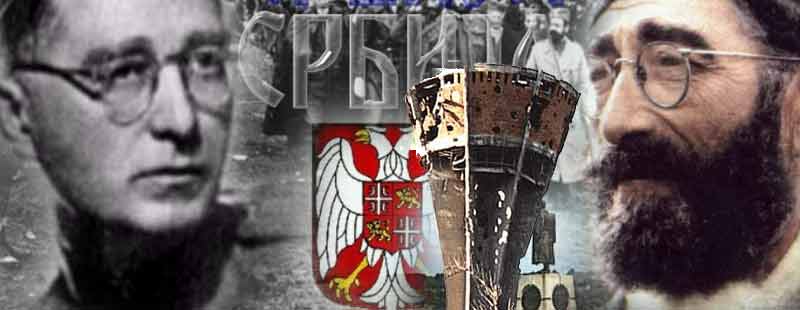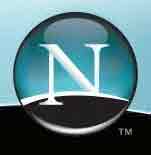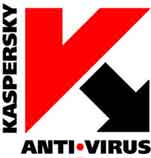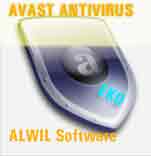WRITTEN RECORD of a deposition made on December 23 1991, in the presence of the Investigating Judge of the military court of Belgrade, with regard to criminal acts as per unknown perpetrators from Vukovar as per Criminal Penal Code of the SFR of Yugoslavia, Article 121.
Deposition
Present: Investigating judge, captain Milomir Salic
Records clerk (civilian employed by the YPA) Milorad Kostadinovic
Witness, Mladen Ivankovic .
Time: Proceedings initiated at 11:00 hours
Place: Military court premises in Belgrade, room 158/II
Remarks: The witness has been advised that in accordance with Article 229 of the Penal Code of the SFR of Yugoslavia, the witness is not obliged to answer such question the answering of which could expose the witness and/or a close relative of the witness to public shame, material damage or criminal proceedings.
The witness has also been advised that in accordance with Article 231, paragraphs 2 and 3, of the Penal Code of the SFR of Yugoslavia, the witness is required to tell the truth, the whole truth and that by failing to do so, the witness may be prosecuted for purgery.
To the initial identity question, the witness answered as follows:
Family and Christian name: Ivankovic Mladen
Father's name: Gligor
Occupation: surgeon in the Medical Center (hereinafter MC) Vukovar
Date and place of birth: January 2, 1940, Trebinje
Residence address: Trg Matije Gupca st. 3, 56000 Vukovar
Place/date of mil. service: Belgrade, 1965
Relationship with accused: No family ties, no known disputes
Asked to say everything he knows about the subject of this inquiry, the witness stated:
" I was engaged as the head of the surgery department in the Medical Center of Vukovar until the end of June 1991, when I was removed from that duty. I remained on the hospital staff after that and in Vukovar, where I worked as a surgeon until November 19 1991 when the army took over the hospital.
While I was in the hospital and working, I was in a position to see and feel a part of the atmosphere prevailing in the hospital and what went on about the hospital and was reflected on work and relations [among the staff] in the hospital. After the armed clash between members of police (*) from Vukovar and the population of Borovo Selo on May 2 of that year, 11 members of the police were admitted and taken care of in the hospital. Beside them, five civilians of ethnic Serbian background were also admitted. Immediately after their admittance, armed policemen also came into the hospital and did not leave until the hospital was liberated on November 11 1991. The five wounded Serbians from the hospital were after a few days urgently transported by the police by helicopter to Zagreb. That was when a polarization occurred among the medical staff. I was accused of allegedly feeling down when wounded policemen were admitted.
After that, the wounded and hurt in various excesses happening at the time in that region began to be admitted. At that time, the director of MC Vukovar was one Race Popovic, M.D. At the close of June this year, one Njavro Juraj, M.D. came to my office, with an assistant sent from Zagreb and two armed men. They were members of the Guard, one called himself "Pliso" and the other called himself "Gazo". Both were armed. Dr. Njavro told me then that I can no longer be the head of the surgical department. He said I could be head of the surgical department section for civilians, while he, Dr. Njavro, would take exclusive care of wounded guardsmen and policemen. Gazo and Pliso joined the conversation and demanded that I dismiss from work all ethnic Serbians who did not come to work regularly. They told me this because at the same time, I acted also as an assistant director for personnel affairs.
They said these were the orders of the Ministry of the Republic of Croatia. I replied that I cannot decide on such matters by myself and that such questions must be resolved by the [hospital] council. At that time, the hospital manager was still [Dr.] Popovic [a Serb]. However, he was soon replaced by a direct order issued by the Minister of Health of the Republic of Croatia, Hebrang. The temporary director of the MC Vukovar was to be Dr. Vesna Bosanac , a pediatrist [a Croat]. Immediately after her coming to this post, in July a crisis HQ was formed. It consisted of assistant directors, Vesna Bosanac, Njavro Juraj, several sisters and myself as an assistant director. I attended the first few meetings which had a working character, but after that, I attended no further meetings. The Crisis HQ was reduced to Dr. Vesna Bosanac and Dr. Njavro Juraj, and these two made all the decisions.
CDA [Croat Democratic Alliance] members were very active at that time in Bogdanovci and Mitnica, they gathered in columns of 20-30 vehicles, they went around towns and shot up Serbian households, broke into households and looted them, took away valuables and liquidated ethnic Serbians. They liquidated in this manner a man called Jovica, nicknamed "Rakijica".
In late August, they began firing mortars at the army barracks, and since my house was near the barracks, I no longer dared go home and my wife, mother-in-law and myself moved over to the hospital.
In the hospital the working conditions were unbearable. Dr. Vesna Bosanac, Dr. Njavro Juraj, Dr. Zujovic from Zagreb, Dr. Kratofil from Osijek, Marko Mandic the plaster man and Dr. Zoran Aleksijevic with his wife stressed themselves to be hard-line Croats.
They stressed this by virtue of their extremism, they would gather in the hospital at night, eat and drink, while the rest of us did not have any food even. They would sing Ustashe songs, like "Korak ide za korakom, Ustasa za barjakom" (Step follows step, Ustasa follows the banner) and such like. A group of ethnic Croats, members of the medical staff, kept their distance from them. A group of ethnic Serbians in the hospital at the time practically had no say in anything. I was in that group, and we had to keep very quite in order to save our bare lives. We were forbidden any gathering, we were not allowed to watch TV or to listen to any radio programs except Croat ones.
More and more wounded and hurt guardsmen and policemen began arriving in the hospital. Their friends and relatives came with them, and at times, there were anything from 100 to 150 armed men in the hospital. The wounded guardsmen and policemen kept their pistols and bombs with them. On October 7 1991, I was called for questioning in connection with some rifle found in my home. The day after, a guardsman came to the hospital, swore at my "chetnik mother" and hit me with his fists across the face and body. They wanted to liquidate me. I managed to get through to Dr. Njavro and Dr. Vesna Bosanac and told them to either kill me, protect me or let me go. Even before this happened, Dr. Njavro ordered two acquaintances of his to accompany me at all times and they forbade me to leave the hospital at all. Since all this was happening in the hospital, I demanded that they resolve the matter. They resolved all other matters there anyway, they had the sole responsibility. Vesna Bosanac told me that the guardsman who beat me and his friends were heros, freedom fighters for their homeland and that they found a cassette tape in my house with Serbian songs on it. I hadn't been in my house since August 25.
Njavro told me then threateningly that "this is a time of war, we can do without anybody". After that, they began interrogating me, they would come for me at 2 AM, and they would interrogate my wife as well.
I was interrogated by one "Bobo" from Lovas, a member of the [Croat] national guard special police. I stress that I tried to run away sometime in October, however, during the actual attempt I was wounded lightly and was returned to the hospital where I continued working, given that I was not seriously hurt. With the exception of this attempt, I practically did not leave the hospital at all from October 25 1991, as I was forbidden to do so by Dr. Njavro and Dr. Bosanac, so I could not leave the hospital premises.
At nights, armed guardsmen used to come to the hospital; among other things, they also had snipers and they climbed onto the hospital roof. Personally, I did not hear them firing because I was in the cellar shelter-operating room, since I was operating all the time. However, I heard that they had been firing from the hospital roof. I was present when Dr. Kust, an anesthesiologist who came from Zagreb, a Croat by nationality, objected and protested with Dr. Bosanac asking her "Why don't you forbid firing from the hospital roof?"
Snipers used to come and climb to the hospital roof and descend from it when the night fell. Sometimes, they were there in early morning hours; when an airplane bomb fell on the hospital we were informed that someone previously fired on the plane from the hospital roof. That's what colleagues from the hospital who heard that said. In front of the hospital from the park and from the yard of "Elektroslavonija" near the hospital, guardsmen fired from their cannons on the army positions. After that, shells fell on them from the positions they fired at and some of those shells hit the hospital.
Initially, Dr. Njavro was charged exclusively with admittance and processing of guardsmen and policemen. However, later on, when there were more and more of them, those of them who were more seriously injured were operated on by Dr. Njavro and myself, and we were assisted by other doctors in their processing.
There were occasions when a [Yugoslav Army] soldier or a territorial were admitted to the hospital. By Njavro's orders, they were taken to a special room. Only Dr. Njavro and a nurse who had to be of Croatian nationality had access to that room. All soldiers and territorials were operated by Dr. Njavro and he commanded that room to which they were taken. Ethnic Serbians were not allowed into that room.
While I was there, I positively know of three soldiers or territorials of ethnic Serbian background who were admitted into the hospital. They were transported there from some shelter in the municipal building. One was brought in with injuries in the region of his left ear and nose and with similar light injuries. I saw him personally. He was accompanied by a guardsman from the special police, tall, slim, in camouflage uniform, blond. When he brought the man in, he said: "This one's a chetnik, he killed some 30 people, he should be liquidated at once". I assume they beat him after admittance to the hospital. The man was quiet, he behaved in a dignified manner, as if he was resolved to his fate. I assume he was processed by Dr. Njavro, since his injuries were light. He was recorded in the Admittance Log, this log was kept by Pero.
After two or three hours of his admittance, one of the guardsmen came in for more bandages which he took to the room where the territorial was taken. I assume they beat him because he had already been processed medically. The man was murdered the same evening and thrown into the Danube. I was told this by the hospital staff. The page with his name on it taken upon admittance to the hospital was torn out, I was shown this by Pero. He doesn't know who tore the page out. Both the Croatians and the Serbians quietly said that this territorial had "gone down the Danube". I really never saw that man again. It was a tall man, with a long face, bony, dark haired, when I saw him he was already changed, I don't know what kind of uniform he wore. That was late in October. Some of our janitor women and nurses recognized that member of the territorials-Yugoslav Army and told me that he had worked before as a waiter."
Asked by the Investigating judge whether the man's name was Nedeljko Turukalo, the witness stated that he could not answer the question because he never learned the man's name.
"Beside the above case, it is known to me that a soldier wounded in the region of his leg and stomach was also admitted to the hospital. He was processed by Dr. Njavro. As I was told later by nurses present at that time, Dr. Njavro let this soldier die on the [operating] table because he didn't tackle the closing of the blood vessel, but went to the stomach first, so the wounded soldier bled to death. I don't remember any more which nurse told me that. I don't know any other details about this soldier, all this happened about ten days before Vukovar was liberated, which is to say on November 9 or 10.
In connection with the third case, I can state that a young soldier was admitted to the hospital, about 19 years of age, tall, lean, by the name of Boban. He was left without father and mother early in life, I think he was from southern Serbia. He was injured in several places, Dr. Njavro operated on him and he was put in the shock room. Four days after the operation I went visiting my patients and by accident that soldier talked to me and said his leg hurt. He complained of pain in his left leg. I noticed that the leg was dying out, seeing symptoms of gaseous gangrene. Njavro put him on the operating table at once and the soldier died during operation (amputation of the left leg). I don't know of any details of this operation. The medical staff talked among themselves and said that Dr. Njavro paid insufficient attention to that patient and failed to note the symptoms of gangrene in time. Njavro had unlimited power. He operated exclusively on soldiers and did all visits to where they were accommodated.
I tried to change some of this via Dr. Vesna Bosanac, I kept telling her that we must do something to stop this from happening, and she told me that all we had to do was hold out for three days and Croatia would be free.
Already on November 17, guardsmen and policemen started arriving at the hospital in civilian clothes. They started dressing in white hospital uniforms and at a rough estimate, I'd say there were about 200 of them. Also coming to the hospital were large groups of ethnic Croatian civilians. A room in the hospital contained about 300 rifles. That was the X-ray room. However, just before the arrival of the army, these weapons were taken somewhere. Everywhere in the hospital, guns were hidden. All hospital employees had special passes with their picture and title on it. This was used to determine who was employed full time, and who used the white cloak to try and get out of Vukovar. They all expected to be evacuated as hospital staff.
Among other people, a man called "Srna" ("Elk"), a [Croat] guardsman, also came to the hospital; his wife was an instrument assistant by the name of Ljiljana. She had left Vukovar long before that. Upon his earlier visits to the hospital, Srna used to say "soldiers had no business surrendering, they should be shot on the spot".
Njavro and Vesna Bosanac also prepared the medical documentation for evacuation. I know that they included in this documentation as dead members of the guard and police who were known by their crimes throughout Vukovar, even though these men were alive. One packed carton of medical documentation was found to contain death certificates and ID cards of guardsmen who were alive.
In connection with Toma Jakovljevic, the plaster man , I can state that he was taken to the hospital straight from his home the day after he was wounded. His leg below his knee was amputated, since his foot had been blown apart. With Toma was his wife. However, Dr. Njavro ordered his evacuation from the hospital since his wound had been processed. Toma spoke to me and said: "Doctor, they want to transport me, help me." I replied that I don't dare even suggest it, since they would liquidate both him and me, and it would surely be much worse for him. He was taken away from the hospital between November 5 and 10, I don't know who took him away. However, later on after Vukovar was liberated, I learnt that both he and his wife were murdered.
In connection with patient Branko Stankovic I can say nothing because I don't remember such a patient."
The witness was shown the medical records and the available photographs, and after examining them, the witness stated:
"It is easy to note that medical records make no note of the wound on the left side of the pectoral region, although this wound is easily seen on the photographs. We have the first diagnosis which fails to mention that wound and a subsequent diagnosis which also makes no mention of that wound, written by Dr. Njavro. Both were written by Dr. Njavro because that is his handwriting.
In connection with Jovic Sasa and two other soldiers found in the hospital, I can state that the army knew about them because Jovic was forced by Dr. Vesna Bosanac to call general Raseta to tell him not to shoot at the hospital. They had to leave them alive, they didn't dare liquidate them because the army knew about them.
I don't know where and in which manner were army soldiers and territorials buried after being taken to the hospital, nor how many were there. Dr. Njavro took strict care of all that. I had no insight into any of that.
For now, I can say no more, however, there are many details of which one could speak, and I am ready, if there is need for it, and after I calm down a little, to speak more of this. That's all I can state at this time.
I don't want to read the record because I heard what was said and everything went on paper as I said it."
Interview closed at 15:00 hours.
Inquiry judge (signature)
Records clerk (signature)
Witness (signature)
A subsequent question of the judge was answered by the witness as follows:
"I don't remember the exact date, but it was possibly in late October or early November when the son of Dr. Vesna Bosanac was brought to the hospital, a young man of 18 in a guardsman's uniform. He was lightly wounded, he walked by himself and when he saw his mother Vesna he spread his arms wide and enthusiastically said to her: "Mama, I killed two chetniks!". This surprised me very much and I left the infirmary and so I don't know what they talked about after that. She tried to calm him down because he appeared to be euphoric."
* * * NOTES BY THE TRANSLATOR: (*) The exact term used is "pripadnici MUP-a", i.e. "members of the Ministry of Internal Affairs"; these are in fact members of Croatian special police forces. (**) "Guard" is an abbreviation of "National Guard member(s)" (Zbor Narodne Garde - ZNG) - Croatian National Guard
(***) CDA - Croat Democratic Alliance, the current ruling party in Croatia, headed by Dr. Franjo Tudjman (HDZ - Hrvatska Demokratska Zajednica). Also known as CDU - "Croat Democratic Union".












